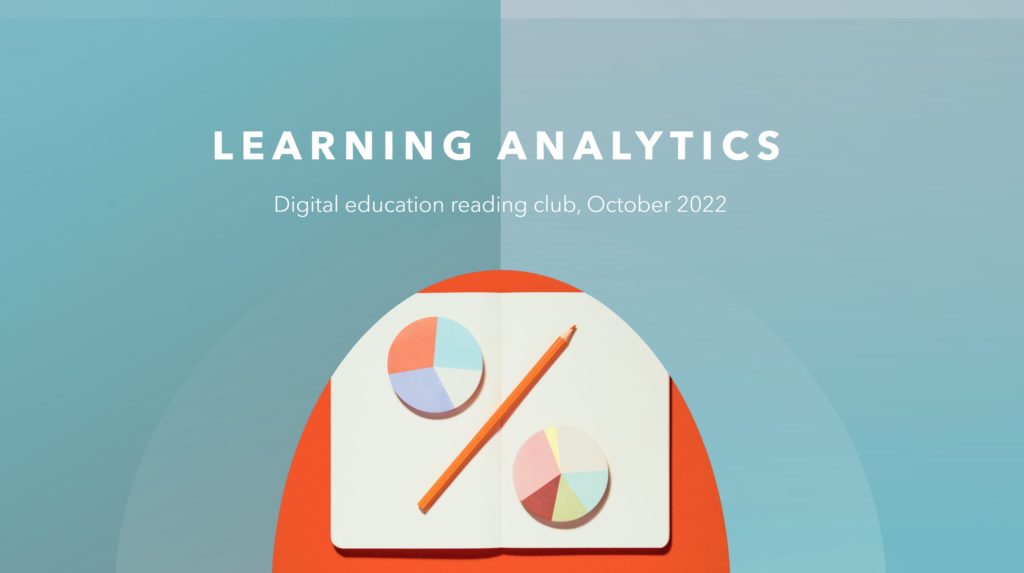
Digital education reading group: October 2022
This month, our digital education reading group explores some key questions around learning analytics. Learning analytics is a huge topic so I have selected resources to give a broad overview of different areas. There is lots(!) so just dip into what interests you – and if you have any other interesting resources please do share. We can focus in on more specific areas in a future reading club perhaps?
Some questions
- In which ways might we use learning analytics?
- To predict student success, and identify those at risk of failing?
- To evaluate our learning designs?
- To provide adaptive learning pathways for our learners to make their study more relevant to their preferences?
- How else?
- What are the issues around using learning analytics?
- What do students think?
- How do we use learning analytics ethically?
Getting started with learning analytics
Rienties, B. (2018) What is Learning Analytics? YouTube.
Rienties Bart (2021) Lessons learned from six years of learning analytics at The Open University | Jisc
Learning analytics informing learning design
Rienties, B. et al. (2017) ‘A review of ten years of implementation and research in aligning learning design with learning analytics at the Open University UK’.
Monitoring student engagement with learning analytics
Jisc (2020) “Learning analytics is about hearts and minds, as well as technology” – James Hodgkin, University of Gloucestershire | Jisc.
What are the issues around using learning analytics?
Selwyn, N. (2019) ‘What’s the Problem with Learning Analytics?’, Journal of Learning Analytics, 6(3), pp. 11–19.
A student perspective
Jalil, N.A. and Leen, M.W.E. (2021) ‘Learning analytics in higher education: The student expectations of learning analytics’, in ACM International Conference Proceeding Series. Association for Computing Machinery, pp. 249–254.
How can we use learning analytics ethically?
Slade, S. and Tait, A. (2019) Global guidelines: Ethics in Learning Analytics.
Thank you very much to Vicky Devaney for the suggestion for this month’s theme and for the lead about the OU’s Prof Bart Rienties.
